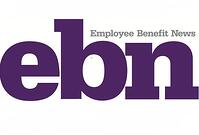Consolidation Corner
-
Blog
- 401k Cash Outs
- 401k Consolidation
- 401k Plan Termination
- America's Mobile Workforce
- Assisted Roll-in
- Auto Enrollment
- Auto Portability
- Auto Portability Simulation
- Automatic Roll-In
- Automatic Rollover
- Automatic Rollovers
- Boston Research Technologies
- CARES act
- Common Mistakes
- DIY Roll-In
- DOL Advisory Opinion
- EBRI
- Employee Benefit News
- ERISA Advisory Council
- Financial Services Roundtable
- Financial Wellness
- How-To
- In-Plan Consolidation
- Leakage
- Lifetime Plan Participation
- Lost Participants
- Managed Portability
- Mandatory Distributions
- MarketWatch
- Missing Participant IRA
- Missing Participants
- National Retirement Savings Cash Out Clock
- Participant Transition Management
- PLANSPONSOR
- Portability Services Network
- PSCA
- Public Policy
- RCH Services
- Retirement Income
- Retirement Plan Portability
- retirement research
- Retirement Savings Consolidation
- Retirement Savings Portability
- Roll-In
- Safe Harbor IRA
- Saver's Match
- Security
- Small Accounts
- Stale Dated Checks
- Synthetic Tenure
- Uncashed Check Services
- Uncashed Distribution Checks
- Video
- Webcast
- What is a Missing Participant?
401k Consolidation (3)
Consolidation Corner Blog
Consolidation Corner is the Retirement Clearinghouse (RCH) blog, and features the latest articles and bylines from our executives, addressing important retirement savings portability topics.
Four Key Findings from the New Auto Portability Simulation
 On the heels of the 11/7/23 announcement by the Portability Services Network that the industry-led consortium has launched its digital auto portability solution powered by Retirement Clearinghouse (RCH), RCH has made available the results from a new version of their Auto Portability Simulation (APS), a discrete event simulation that models the adoption of auto portability within America’s defined contribution system, over a 40-year period.
On the heels of the 11/7/23 announcement by the Portability Services Network that the industry-led consortium has launched its digital auto portability solution powered by Retirement Clearinghouse (RCH), RCH has made available the results from a new version of their Auto Portability Simulation (APS), a discrete event simulation that models the adoption of auto portability within America’s defined contribution system, over a 40-year period.
Auto Portability: It’s About the Participants
 It’s sometimes easy to forget a basic tenet about auto portability.
It’s sometimes easy to forget a basic tenet about auto portability.
Auto portability is about the participants.
And not just any participants. Auto portability is about the participants who truly need it, and – according to multiple surveys – have expressed a strong preference for it.
Focus Shifts to Plan Sponsors as Portability Network Set to Go Live
 When the Portability Services Network (PSN) goes live at the beginning of the fourth quarter of 2023, the focus of attention for auto portability will shift from the industry-led network of service providers to the leading plan sponsors who will begin adopting the new plan feature.
When the Portability Services Network (PSN) goes live at the beginning of the fourth quarter of 2023, the focus of attention for auto portability will shift from the industry-led network of service providers to the leading plan sponsors who will begin adopting the new plan feature.
As PSN operations commence, and the automated plan-to-plan consolidation of small balances begins, a familiar industry adoption pattern will emerge – where innovators within the plan sponsor community lead the charge and are quickly followed by others.
The Future is Brighter for Small-Balance Retirement Accounts
 While small-balance retirement savings accounts have fared poorly in the past, their future has never looked brighter. Real progress is being made in reducing their numbers while simultaneously preserving and consolidating their savings, vs. previous “solutions” that encouraged them to cash out or exiled them to dead-end safe harbor IRAs.
While small-balance retirement savings accounts have fared poorly in the past, their future has never looked brighter. Real progress is being made in reducing their numbers while simultaneously preserving and consolidating their savings, vs. previous “solutions” that encouraged them to cash out or exiled them to dead-end safe harbor IRAs.
The 401(k) “House-Cleaning” to Come
 The increase in the automatic rollover threshold from $5,000 to $7,000, as provided for in section 304 of the SECURE 2.0 legislation, will become effective for mandatory distributions made after December 31, 2023.
The increase in the automatic rollover threshold from $5,000 to $7,000, as provided for in section 304 of the SECURE 2.0 legislation, will become effective for mandatory distributions made after December 31, 2023.
What will be the impact of these provisions, if fully embraced by plan sponsors? One thing is certain – on both a one-time and ongoing basis, far more terminated participants will be subject to the automatic rollover provisions of their former-employers’ plans.
As Time Passes, The Gains Become Harder
 Anyone of sufficient age who exercises regularly knows that gains become harder as you grow older. While improvements are possible, increased effort doesn’t always work. Instead, older fitness aficionados dial in the quality and efficiency of their workouts to experience continued gains.
Anyone of sufficient age who exercises regularly knows that gains become harder as you grow older. While improvements are possible, increased effort doesn’t always work. Instead, older fitness aficionados dial in the quality and efficiency of their workouts to experience continued gains.
Highway Through the 'Danger Zone'
 The 401(k) cashout leakage problem is once again in the news, with the publication of an alarming study by academics, as well as new data from Fidelity Investments revealing a cashout leakage ‘danger zone’ facing participants between the ages of 30-39.
The 401(k) cashout leakage problem is once again in the news, with the publication of an alarming study by academics, as well as new data from Fidelity Investments revealing a cashout leakage ‘danger zone’ facing participants between the ages of 30-39.
These studies, combined with the mounting weight of empirical evidence gathering for more than a decade, confirm that 401(k) cashout leakage is a huge, persistent problem.
A New Year’s Resolution for Sponsors: Facilitate Automated Plan-to-Plan Portability for Your Participants
 At a time when terms like “inflation,” “gas prices,” “recession,” and “volatility” dominate chatter about the U.S. economy, plan sponsors and recordkeepers are likely fielding questions and concerns from participants. Every dollar counts when saving for a financially secure retirement, especially with the present volatility in the financial markets. But while investment fund options, asset classes, and fees are important for helping participants weather inflation and save more, there is another way that sponsors and recordkeepers can help participants protect, and increase, their retirement savings in the New Year—facilitate portability.
At a time when terms like “inflation,” “gas prices,” “recession,” and “volatility” dominate chatter about the U.S. economy, plan sponsors and recordkeepers are likely fielding questions and concerns from participants. Every dollar counts when saving for a financially secure retirement, especially with the present volatility in the financial markets. But while investment fund options, asset classes, and fees are important for helping participants weather inflation and save more, there is another way that sponsors and recordkeepers can help participants protect, and increase, their retirement savings in the New Year—facilitate portability.
BREAKING: Leading 401(k) Providers, RCH Announce National Auto Portability Network
401(k) Plans: An Ongoing Public-Private Partnership That Works
 The observance of National 401(k) Day on Friday, September 9th is an opportunity to reflect on the long-running, highly successful public-private collaboration that has fostered the rapid ascendance of America’s 401(k) system.
The observance of National 401(k) Day on Friday, September 9th is an opportunity to reflect on the long-running, highly successful public-private collaboration that has fostered the rapid ascendance of America’s 401(k) system.
It’s my belief that this partnership will continue to drive innovations that will expand and improve the 401(k) system for millions of Americans – not only helping them to save more but preserving more of their savings for retirement.
-
Blog
- 401k Cash Outs
- 401k Consolidation
- 401k Plan Termination
- America's Mobile Workforce
- Assisted Roll-in
- Auto Enrollment
- Auto Portability
- Auto Portability Simulation
- Automatic Roll-In
- Automatic Rollover
- Automatic Rollovers
- Boston Research Technologies
- CARES act
- Common Mistakes
- DIY Roll-In
- DOL Advisory Opinion
- EBRI
- Employee Benefit News
- ERISA Advisory Council
- Financial Services Roundtable
- Financial Wellness
- How-To
- In-Plan Consolidation
- Leakage
- Lifetime Plan Participation
- Lost Participants
- Managed Portability
- Mandatory Distributions
- MarketWatch
- Missing Participant IRA
- Missing Participants
- National Retirement Savings Cash Out Clock
- Participant Transition Management
- PLANSPONSOR
- Portability Services Network
- PSCA
- Public Policy
- RCH Services
- Retirement Income
- Retirement Plan Portability
- retirement research
- Retirement Savings Consolidation
- Retirement Savings Portability
- Roll-In
- Safe Harbor IRA
- Saver's Match
- Security
- Small Accounts
- Stale Dated Checks
- Synthetic Tenure
- Uncashed Check Services
- Uncashed Distribution Checks
- Video
- Webcast
- What is a Missing Participant?
